I can't say enough good things about Midwest Recovery; I just want to say thank you to all the staff for giving me a better wife than I had 90 days ago! They were excellent with all my family they don't only care about the addicts but also the family who also suffer. When th ...
About Midwest Recovery Centers
The first step for many seeking treatment is detox. Clients reside at the facility during this process, where they can be monitored and cared for by the medical team, which helps clients cope with withdrawal. Once a client is stable, they can enter the appropriate level of treatment.
The residential program sees clients live at the facility while receiving treatment. The residence is a secure facility monitored around the clock by staff, who assist in meeting clients’ needs. This is a supportive community environment where clients follow a structured schedule.
Treatment is built on therapy and education groups that seek to help clients better understand their addictions, emotions, and triggers while teaching them improved communication and coping skills to support ongoing recovery. Therapy takes place individually and in groups.
During the second residential treatment phase, clients are moved to transitional housing, where they continue to receive outpatient care. Clients begin taking on more responsibility and gain more freedom as they continue to receive treatment and practice coping skills in anticipation of returning to independent living.
The IOP day program has clients visit the treatment facility three nights a week for three hour sessions. It’s sometimes used following inpatient care and lasts for 24 sessions. Clients participate in the same types of therapy and education groups as those offered in inpatient care.
This is a less intensive version of IOP for those who have shown improvement in coping skills and substance use avoidance. It uses the same model of therapy and education groups but meets less frequently than IOP, two and a half hours a night for two nights a week.
Latest Reviews
Rehab Score
Gallery
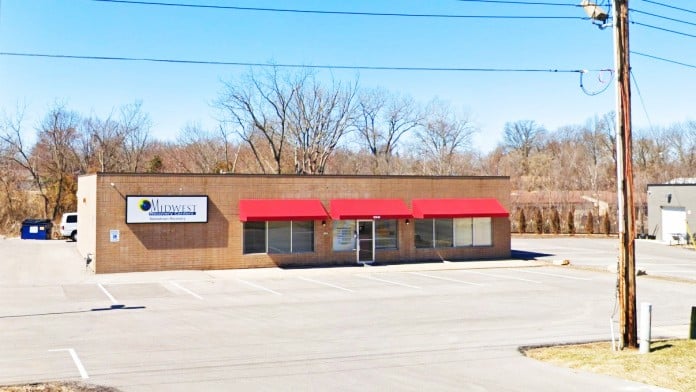
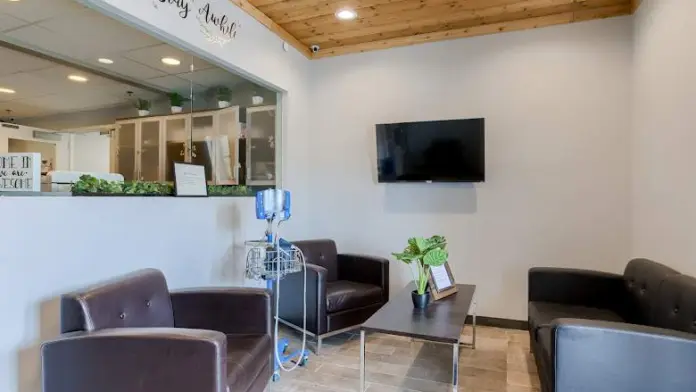
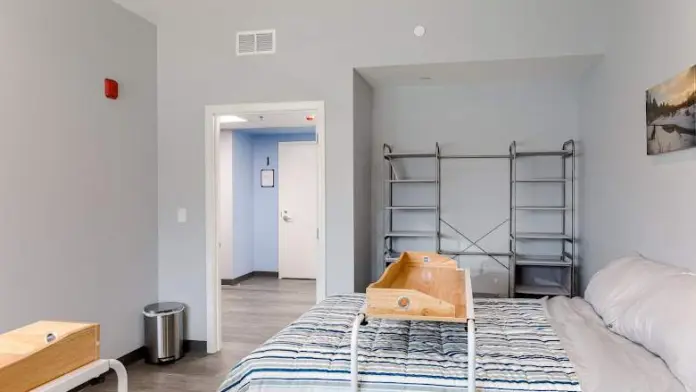
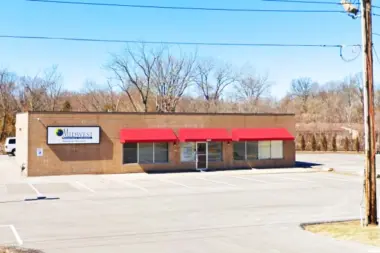
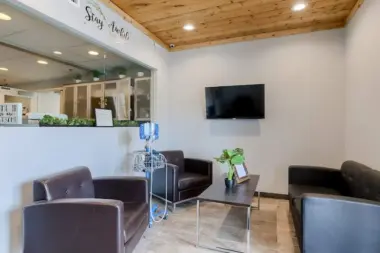
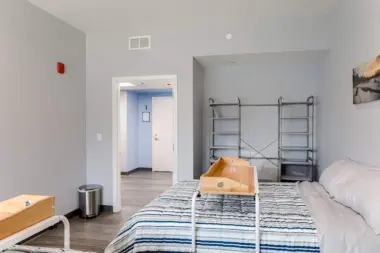
Other Forms of Payment
Private insurance refers to any kind of healthcare coverage that isn't from the state or federal government. This includes individual and family plans offered by an employer or purchased from the Insurance Marketplace. Every plan will have different requirements and out of pocket costs so be sure to get the full details before you start treatment.
Self-pay involves paying for treatment out of your own pocket. You can use savings or credit, get a personal loan, or receive help from family and friends to fund your treatment. If you don't have insurance or your insurance plan doesn't cover a specific program, self-pay can help ensure you still get the care you need.
Addiction Treatments
Levels of Care
Outpatient Services are available for those who have been able to cease consistent and persistent drug and alcohol abuse, and have also developed a foundation of recovery tools in a previous program such as Residential and/or IOP services. Outpatient services are provided 1 or 2 nights per week, depending on clinical necessity.
Intensive Outpatient programs are for those who want or need a very structured treatment program but who also wish to live at home and continue with certain responsibilities (such as work or school). Community Intensive Outpatient is tailored to those individuals that have been able to cease consistent and persistent drug and alcohol abuse, but still require the development of tools to respond to relapse triggers, cravings, and other hurdles of early recovery.
Rehab aftercare programs offer continuing care for clients in the maintenance phase of recovery and are designed to evolve over time. Outpatient treatment is generally categorized as drug rehab aftercare, but many clients continue to receive services after being discharged from formal care. These services are customized to clients' unique recovery goals, but typically include medical, mental health, and social services. Clients' case manager and recovery team play a key role in developing the client's care plan.
At certain points in the recovery process, it's important to have support available 24/7. 24-hour clinical care offers a safe environment in which to recover from drug or alcohol addiction in peace, knowing medical detox and other treatment will happen with professionals on hand.
Designed for individuals who don't require 24/7 monitoring, a partial hospitalization program (PHP) provides intensive-level treatment while allowing you to stay at home. PHP treatment typically requires a commitment of at least 20 hours of treatment per week for an average duration of 90 days. Services commonly offered in PHP include medication management and evidence-based therapies, such as cognitive-behavioral therapy (CBT), and dialectical behavior therapy (DBT). Insurance coverage for PHP treatment may vary depending on your provider.
While they are a therapeutic program first, therapy is only part of the package; they also offer a structured sober living program. They believe that residing in a safe environment with others in the same stages of recovery promotes a sense of community and provides support. Their scheduled activities and functions are in place to follow a fun and healthy, active sober lifestyle.
Treatments
The goal of treatment for alcoholism is abstinence. Those with poor social support, poor motivation, or psychiatric disorders tend to relapse within a few years of treatment. For these people, success is measured by longer periods of abstinence, reduced use of alcohol, better health, and improved social functioning. Recovery and Maintenance are usually based on 12 step programs and AA meetings.
Drug rehab in Missouri usually involves several phases: detox, rehab, and aftercare. The rehab phase may include a combination of inpatient and outpatient treatments, as the individual moves through a continuum of care on their recovery journey.
Many of those suffering from addiction also suffer from mental or emotional illnesses like schizophrenia, bipolar disorder, depression, or anxiety disorders. Rehab and other substance abuse facilities treating those with a dual diagnosis or co-occurring disorder administer psychiatric treatment to address the person's mental health issue in addition to drug and alcohol rehabilitation.
Opioid rehabs specialize in supporting those recovering from opioid addiction. They treat those suffering from addiction to illegal opioids like heroin, as well as prescription drugs like oxycodone. These centers typically combine both physical as well as mental and emotional support to help stop addiction. Physical support often includes medical detox and subsequent medical support (including medication), and mental support includes in-depth therapy to address the underlying causes of addiction.
Substance rehabs focus on helping individuals recover from substance abuse, including alcohol and drug addiction (both illegal and prescription drugs). They often include the opportunity to engage in both individual as well as group therapy.
Programs
Adult rehab programs include therapies tailored to each client's specific needs, goals, and recovery progress. They are tailored to the specific challenges adult clients may face, including family and work pressures and commitments. From inpatient and residential treatment to various levels of outpatient services, there are many options available. Some facilities also help adults work through co-occurring conditions, like anxiety, that can accompany addiction.
Young adulthood can be an exciting, yet difficult, time of transition. Individuals in their late teens to mid-20s face unique stressors related to school, jobs, families, and social circles, which can lead to a rise in substance use. Rehab centers with dedicated young adult programs will include activities and amenities that cater to this age group, with an emphasis on specialized counseling, peer socialization, and ongoing aftercare.
Clinical Services
Cognitive Behavioral Therapy (CBT) is a therapy modality that focuses on the relationship between one's thoughts, feelings, and behaviors. It is used to establish and allow for healthy responses to thoughts and feelings (instead of unhealthy responses, like using drugs or alcohol). CBT has been proven effective for recovering addicts of all kinds, and is used to strengthen a patient's own self-awareness and ability to self-regulate. CBT allows individuals to monitor their own emotional state, become more adept at communicating with others, and manage stress without needing to engage in substance abuse.
A complete course of dialectical behavior therapy typically takes six months. Skills training happens in a group setting. You'll also attend weekly individual treatment sessions to receive coaching from a therapist. You'll work on understanding and accepting your feelings and learn how to manage them to make positive changes.
The goal of group therapy is to assist each client in identifying and understanding their own pathology in regard to their substance dependence. They strive to interrupt the self-destructive patterns of alcohol and drug use. Their talented staff have developed curriculum that promote the development of relapse prevention skills, communication skills, introspection, harm reduction and resolution, and establishing healthy boundaries. Group therapies range from emotional process groups, to cognitive behavioral therapies and psycho-educational groups. These lessons may be delivered in lecture form, group discussion, artistic expression, video, or written assignments.
During the admission process, each individual is assigned a personal therapist that will conduct individual therapy. They understand that some difficulties take time to resolve, and a group setting is not always the best avenue to find solutions. Individual therapy provides the opportunity to work on specific issues, have ongoing assessment and diagnosis, and to provide appropriate referrals. They have a large team of trained professionals in the community who may work in conjunction with the staff at Midwest to provide a complete clinical experience.
Experiential therapy is a form of therapy in which clients are encouraged to surface and work through subconscious issues by engaging in real-time experiences. Experiential therapy departs from traditional talk therapy by involving the body, and having clients engage in activities, movements, and physical and emotional expression. This can involve role-play or using props (which can include other people). Experiential therapy can help people process trauma, memories, and emotion quickly, deeply, and in a lasting fashion, leading to substantial and impactful healing.
Amenities
-
Private Setting
Staff & Accreditations
Staff
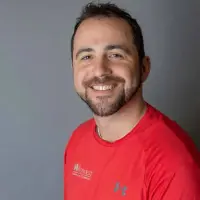
Kevin O’Grady, M.S. CRADC
CEO
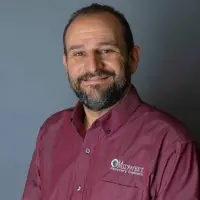
Geffen Liberman
Executive Director of Detox & Residential Services

Shay McNeal, NP-C
Medical Director

Dr. John D. Rogers, MD
Consultant
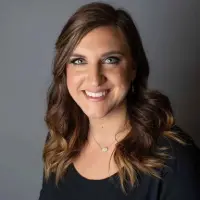
Suzanne Taylor, LCSW
Clinical Director

Taylor Brown, CADC
Admissions & Marketing Director
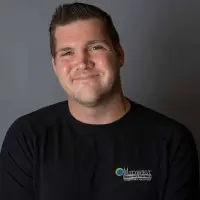
Dan Poole, MAADC II
Facilities & Program Director
Accreditations

LegitScript has reviewed Midwest Recovery Centers as part of their certification program, and has determined that it meets the LegitScript standards for legality, safety and transparency.
LegitScript verified in

The Joint Commission, formerly known as JCAHO, is a nonprofit organization that accredits rehab organizations and programs. Founded in 1951, the Joint Commision's mission is to improve the quality of patient care and demonstrating the quality of patient care.
Joint Commission Accreditation: Yes
Contact Information
13340 Holmes Road
Kansas City MO, 64145